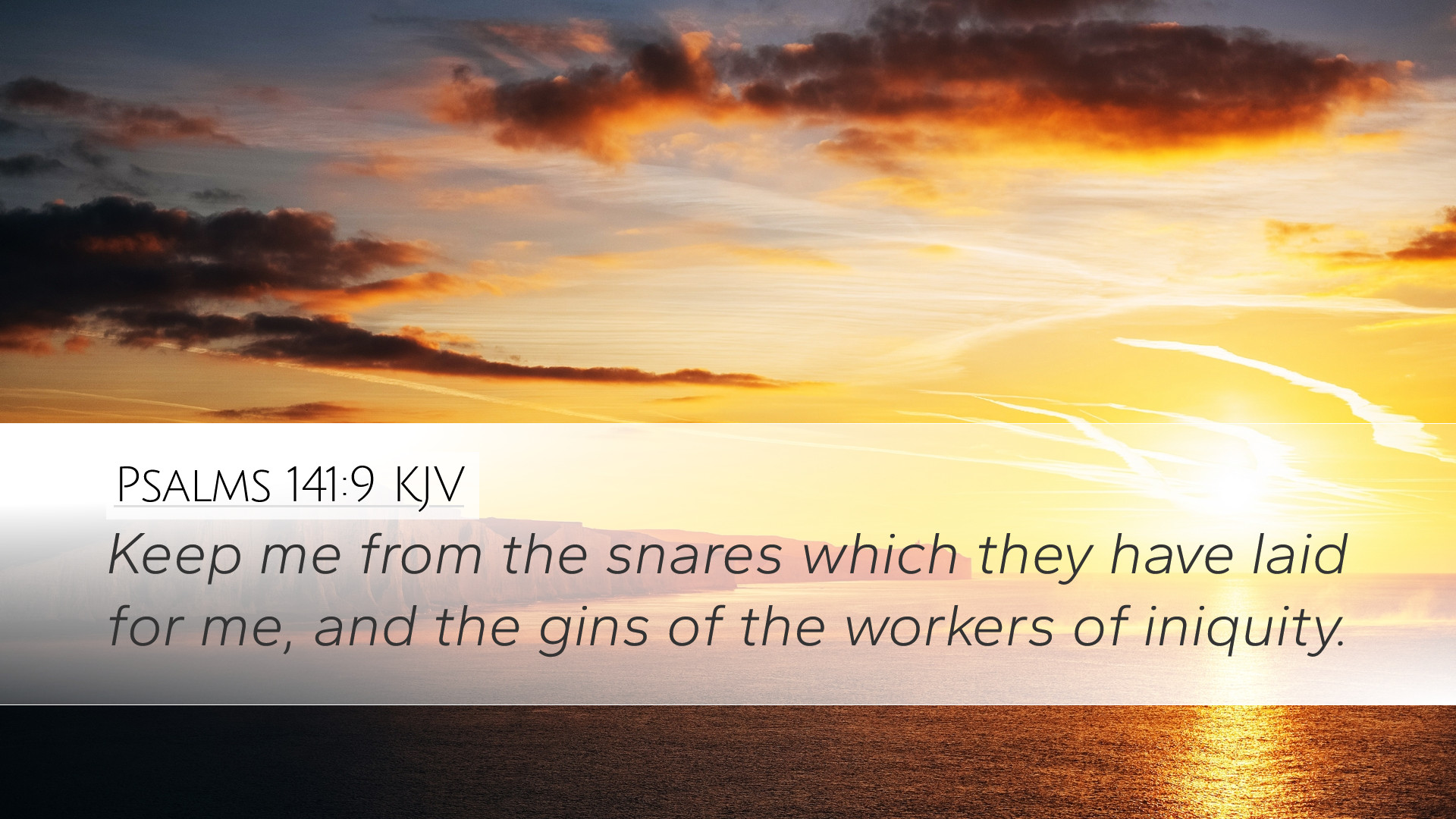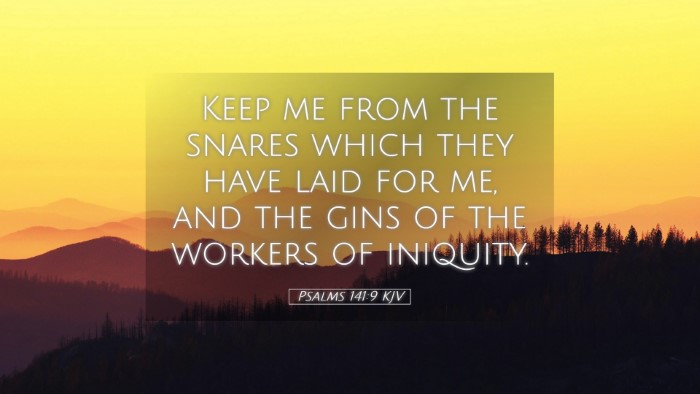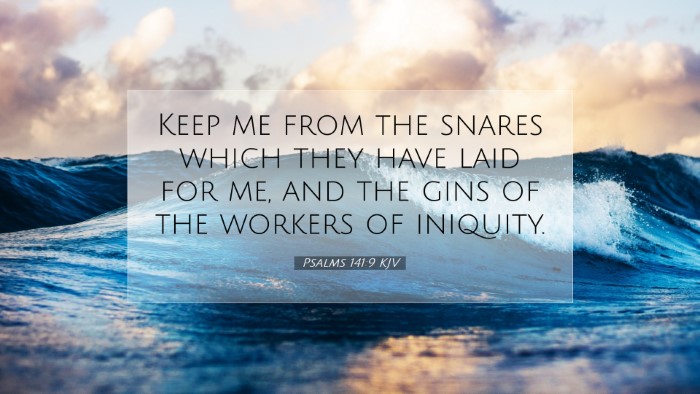Commentary on Psalms 141:9
Psalms 141:9 states: "Keep me from the snares which they have laid for me, and the gins of the workers of iniquity." This verse is a plea for divine protection and deliverance from those who seek to do harm, reflecting both the vulnerability of the individual and the ever-present danger of evil.
Contextual Overview
This Psalm is attributed to David and expresses a deep yearning for God’s guidance and protection amidst adversarial forces. The psalmist communicates a conscious awareness of the spiritual and moral dangers surrounding him, and, in doing so, reveals a key aspect of prayer—a recognition of our dependence on God.
Theological Insights
The plea in Psalms 141:9 can be examined through various theological lenses:
- Divine Protection: The request for protection signifies an understanding that God is the ultimate source of safety and security. It reflects the belief that human resources are insufficient against spiritual foes.
- The Nature of Evil: The "snares" and "gins" represent the traps set by the "workers of iniquity," indicating the insidious nature of evil. Evil can be both external and internal, and the psalmist acknowledges this duality in his prayer.
- Intimacy with God: The personal appeal to God demonstrates a relationship built on trust. The psalmist's reliance on God's vigilance fosters a deep spiritual intimacy in the midst of adversity.
Commentary Contributions
Matthew Henry's Commentary
Henry notes that this verse stresses the psalmist's desire to be shielded from the malice of adversaries. He emphasizes that the "snares" refer to hidden plots and schemes that the wicked devise against the righteous. Henry elaborates that David's awareness of these dangers enhances his earnestness in prayer. His plea to God suggests that trusting in God for protection is paramount amid life's uncertainties.
Albert Barnes' Notes
Barnes comments on the figurative language utilized in Psalms 141:9, wherein snares and gins symbolize traps set for the innocent. He highlights the reality of the persecution that believers often face and reminds readers that reliance on God is crucial for avoiding moral and spiritual pitfalls. He also notes that the psalmist’s request for protection is assured by God’s promise to guide and protect the faithful who call upon His name.
Adam Clarke's Commentary
Clarke adds a practical dimension to understanding this verse. He emphasizes the necessity of being perceptive about the dangers that confront believers. By asking God to "keep" him, the psalmist expresses the need for divine oversight, especially in moments of temptation and trial. Clarke suggests that this verse serves as a reminder for believers to remain vigilant and to continually seek God’s guidance in their lives.
Practical Applications
For pastors, students, theologians, and Bible scholars, the insights gleaned from Psalms 141:9 offer several practical applications:
- Prayer as a Shield: Recognizing prayer as a vital practice in seeking divine intervention against the trials and tribulations of life encourages believers to approach God earnestly.
- Aware of Spiritual Warfare: The acknowledgment of 'workers of iniquity' invites reflection on the reality of spiritual warfare, prompting believers to equip themselves with spiritual armor as described in Ephesians 6.
- Trust in God’s Character: This verse serves as a call to trust in God’s character and promises during difficult times, reinforcing the understanding that God’s protection is active and personal.
Concluding Thoughts
Psalms 141:9 encapsulates a deep spiritual truth concerning reliance on Divine protection amidst the dangers posed by enemies of righteousness. The collective insights of faithful commentators such as Matthew Henry, Albert Barnes, and Adam Clarke reveal a multifaceted understanding of this verse, highlighting the rich tapestry of prayer, protection, and personal relationship with God. As individuals engage with this passage, may it encourage a profound dependence on God’s grace and guidance through every challenge faced.


